34 results in BibleWorld
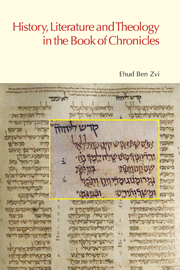
History, Literature and Theology in the Book of Chronicles
-
- Published by:
- Acumen Publishing
- Published online:
- 05 June 2014
- Print publication:
- 30 November 2006
-
- Book
- Export citation

Jonah's World
- Social Science and the Reading of Prophetic Story
-
- Published by:
- Acumen Publishing
- Published online:
- 05 June 2014
- Print publication:
- 31 January 2008
-
- Book
- Export citation

Sodomy
- A History of a Christian Biblical Myth
-
- Published by:
- Acumen Publishing
- Published online:
- 05 June 2014
- Print publication:
- 31 October 2004
-
- Book
- Export citation
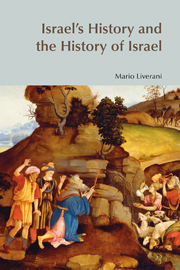
Israel's History and the History of Israel
-
- Published by:
- Acumen Publishing
- Published online:
- 05 June 2014
- Print publication:
- 30 November 2005
-
- Book
- Export citation
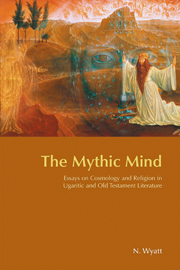
The Mythic Mind
- Essays on Cosmology and Religion in Ugaritic and Old Testament Literature
-
- Published by:
- Acumen Publishing
- Published online:
- 05 June 2014
- Print publication:
- 30 June 2005
-
- Book
- Export citation

Sectarianism in Early Judaism
- Sociological Advances
-
- Published by:
- Acumen Publishing
- Published online:
- 05 June 2014
- Print publication:
- 30 September 2007
-
- Book
- Export citation

Women Healing/Healing Women
- The Genderization of Healing in Early Christianity
-
- Published by:
- Acumen Publishing
- Published online:
- 05 June 2014
- Print publication:
- 31 December 2006
-
- Book
- Export citation
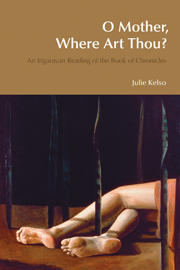
O Mother, Where Art Thou?
- An Irigarayan Reading of the Book of Chronicles
-
- Published by:
- Acumen Publishing
- Published online:
- 05 June 2014
- Print publication:
- 31 January 2008
-
- Book
- Export citation

The Morality of Paul's Converts
-
- Published by:
- Acumen Publishing
- Published online:
- 05 June 2014
- Print publication:
- 30 April 2005
-
- Book
- Export citation

The Origins of the 'Second' Temple
- Persian Imperial Policy and the Rebuilding of Jerusalem
-
- Published by:
- Acumen Publishing
- Published online:
- 05 June 2014
- Print publication:
- 30 September 2005
-
- Book
- Export citation
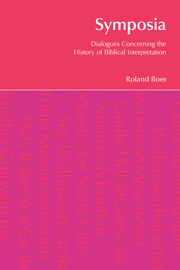
Symposia
- Dialogues Concerning the History of Biblical Interpretation
-
- Published by:
- Acumen Publishing
- Published online:
- 05 June 2014
- Print publication:
- 31 May 2007
-
- Book
- Export citation

Jesus in an Age of Neoliberalism
- Quests, Scholarship and Ideology
-
- Published by:
- Acumen Publishing
- Published online:
- 05 June 2014
- Print publication:
- 31 July 2012
-
- Book
- Export citation
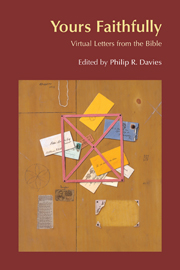
Yours Faithfully
- Virtual Letters from the Bible
-
- Published by:
- Acumen Publishing
- Published online:
- 05 June 2014
- Print publication:
- 31 October 2004
-
- Book
- Export citation
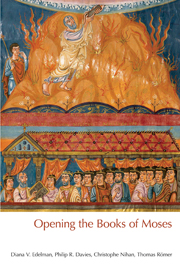
Opening the Books of Moses
-
- Published by:
- Acumen Publishing
- Published online:
- 05 May 2014
- Print publication:
- 28 February 2012
-
- Book
- Export citation
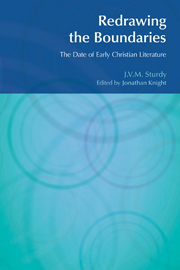
Redrawing the Boundaries
- The Date of Early Christian Literature
-
- Published by:
- Acumen Publishing
- Published online:
- 05 May 2014
- Print publication:
- 31 January 2008
-
- Book
- Export citation

A Compendium of Musical Instruments and Instrumental Terminology in the Bible
-
- Published by:
- Acumen Publishing
- Published online:
- 05 May 2014
- Print publication:
- 31 October 2009
-
- Book
- Export citation

The Bible Says So!
- From Simple Answers to Insightful Understanding
-
- Published by:
- Acumen Publishing
- Published online:
- 05 May 2014
- Print publication:
- 31 March 2009
-
- Book
- Export citation

Sex Working and the Bible
-
- Published by:
- Acumen Publishing
- Published online:
- 05 May 2014
- Print publication:
- 30 November 2009
-
- Book
- Export citation
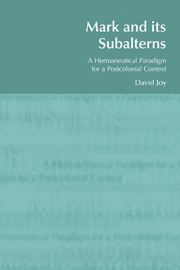
Mark and its Subalterns
- A Hermeneutical Paradigm for a Postcolonial Context
-
- Published by:
- Acumen Publishing
- Published online:
- 05 May 2014
- Print publication:
- 30 June 2008
-
- Book
- Export citation
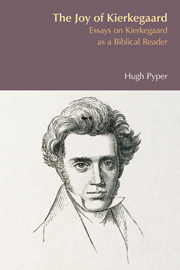
The Joy of Kierkegaard
- Essays on Kierkegaard as a Biblical Reader
-
- Published by:
- Acumen Publishing
- Published online:
- 05 May 2014
- Print publication:
- 31 July 2012
-
- Book
- Export citation


